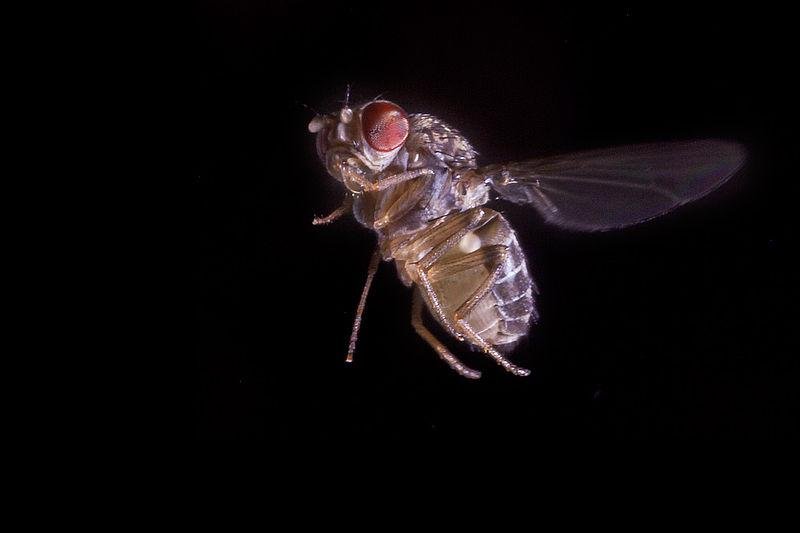A fruit fly. (F Muijres/U of Washington)
OXFORD, England, May 22 (UPI) -- Just as a high school student lingers over a difficult exam question, fruit flies take pause to process information when faced with a tough decision -- like differentiating between two odors. That according to a new study published this week in the journal Science.
"This is the clearest evidence yet of a cognitive process running in a very simple brain," explained Professor Gero Miesenböck, who led a team of researchers at the University of Oxford's Center for Circuits and Behavior.
Miesenböck and his fellow scientists were able to isolate a specific gene and some 200 neurons associated with fruit flies' tendency to ponder over difficult dilemmas.
"People tended to think of insects as tiny robots that just respond reflexively to signals from the environment," Miesenböck told BBC News. "Now we know that's not true."
The researchers arrived at their conclusion by first training fruit flies to avoid a toxic smell at a specific intensity. Next, they offered the flies a choice between a high level of the odor and a weaker one. The flies chose wisely when the difference was pronounced, but when the differences were lower, the flies had only a 50-50 shot at choosing the less dangerous odor.
More importantly, as the differences between the two odors were smaller, the flies took longer to decide which way to go.
The scientists also found that flies with mutations of FoxP -- a gene associated with decision making -- took even longer to decide, indicating they had trouble accumulating enough information to meet the threshold of action.
"Before a decision is made, brain circuits collect information like a bucket collects water," Dr. Shamik DasGupta, the study's lead author, explained. "Once the amount of accumulated information has risen to a certain level, the decision is triggered."
The researchers isolated the influence of FoxP to roughly 200 neurons in the flies' brains. Manipulation of these neurons retarded the decision making process in the same way genetic mutations did.
Scientists already knew primates and other vertebrates take time to weigh pros and cons, but now they can show that insects demonstrate a similar cognitive approach.
"The same mathematical models that describe human decision-making also capture the flies' behavior perfectly," Prof Miesenböck said. "That's remarkable."















